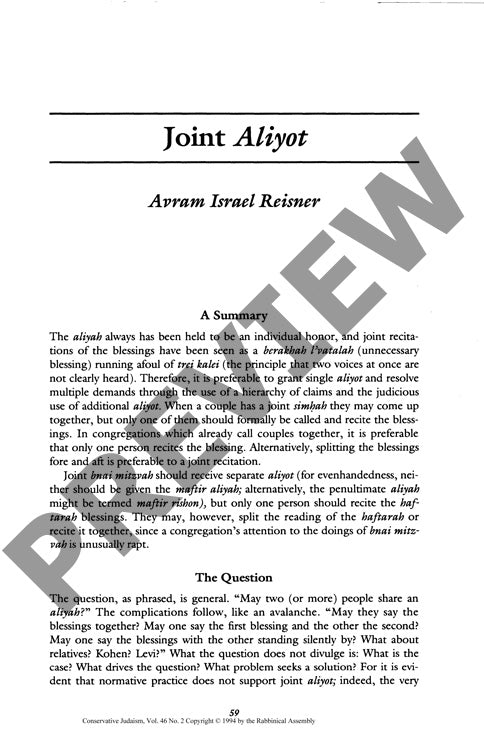Joint Aliyot
Couldn't load pickup availability
Can two people share the honor of blessing the Torah during Jewish services? Medieval rabbis emphatically said no, citing both practical concerns about hearing multiple voices and deeper questions about unnecessary blessings. Through analysis of Talmudic sources, medieval responsa, and contemporary rulings, a clear pattern emerges: normative Jewish law consistently opposes joint aliyot (Torah honors), with authorities like Rivash explicitly prohibiting dual blessings. While Simhat Torah celebrations permit certain exceptions, these cannot extend to regular services. The investigation examines primary sources including the Babylonian and Jerusalem Talmuds, major codes, and rabbinic responsa, focusing on the tensions between trei kalei (two voices cannot be clearly heard simultaneously) and berakhah levatalah (unnecessary blessings). Modern egalitarian congregations, often facing multiple celebratory obligations, have renewed pressure for shared honors. However, the evidence supports maintaining aliyot as individual honors, though couples may share an aliyah with only one partner reciting blessings. For communities seeking to accommodate multiple honorees, adding hosafot (additional aliyot) provides a preferable solution to joint honors. This analysis offers contemporary congregations a hierarchical framework for managing competing ritual demands while preserving traditional Torah honor structures.

More Information
-
Physical Description
-
Publication Information
Published 1994
ISBN
-
Publication Credits
Avram Reisner

